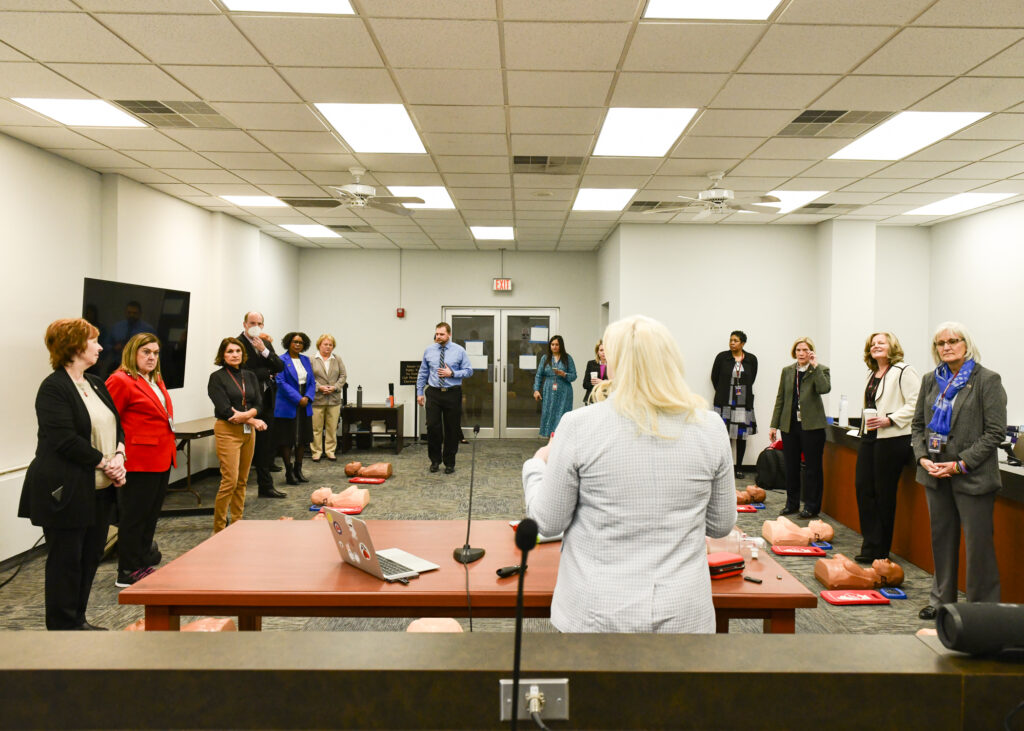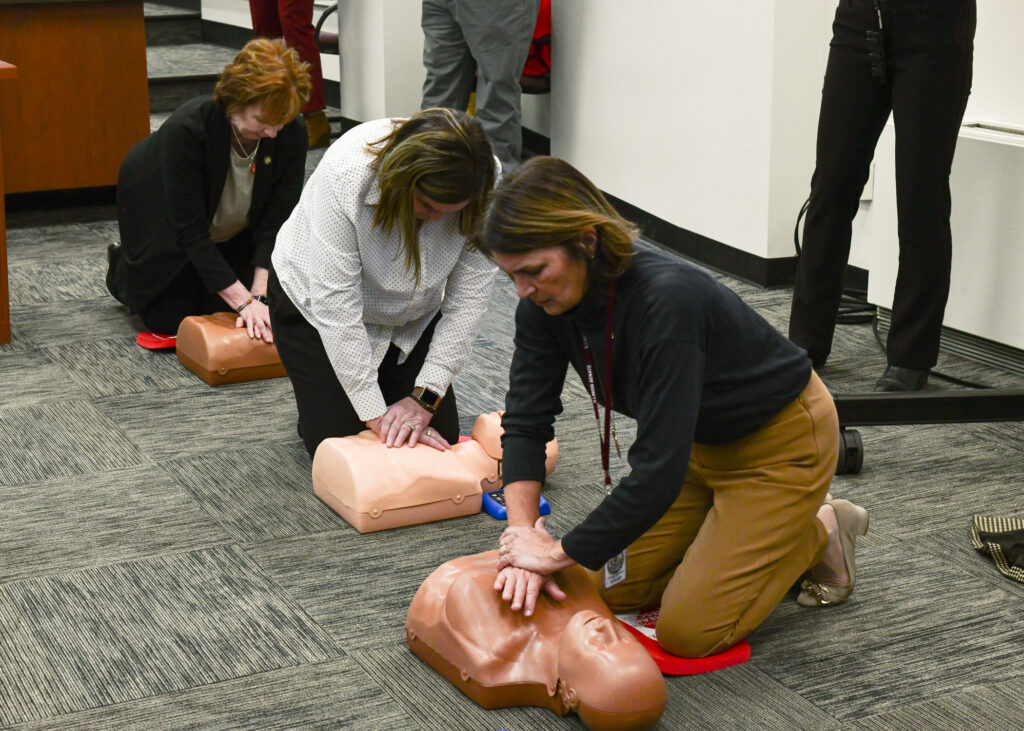
Members of the Illinois Senate Women’s Caucus are preparing themselves to make a lifesaving difference within their communities after participating in a Hands-Only CPR training course led by Illinois Heart Rescue and the American Heart Association on Feb. 16.
Organized by the bipartisan group of women senators, the training allowed all members of the Illinois Senate a convenient opportunity to learn how to perform Hands-Only CPR and the importance of knowing this lifesaving treatment.
“February is American Heart Month, National Wear Red Day was Feb. 3, and we celebrated #GoRedDay at the Capitol on Feb. 14. What better way to promote women’s heart health than to participate in Hands-Only CPR training, which I first learned about when portable defibrillators started to become available in public buildings,” said State Senator Jil Tracy (R-Quincy), co-chair of the caucus. “So today, members of the Illinois Senate Women’s Caucus, other senators and legislative staff took time to learn Hands-Only CPR, which can make a tremendous difference in saving a life during an emergency.”

“The Women’s Caucus wanted to sponsor this training during American Heart Month to help us understand how heart attacks affect women differently than men and to be prepared to respond if necessary,” said State Senator Ann Gillespie (D-Arlington Heights), co-chair of the caucus. “Women rarely have chest pain, so the more we know about assessing the situation and helping the victim, the better their chances are of survival.”
“We also learned that AED (Automatic External Defibrillators) batteries can lose their charge when they haven’t been checked for lengthy periods,” Gillespie said. “As senators, we will work with the American Heart Association to determine what type of regulation we should put in place to ensure those tools are always available and in proper working order.”
Approximately 20 state senators took part in the training exercise where they also learned how to detect if someone is having a cardiac arrest.
